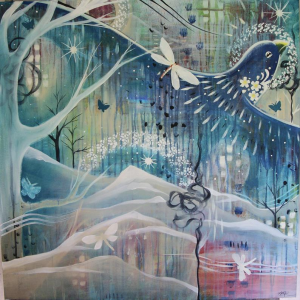 The Yogabliss on-line Moving into Meditation class met this morning. We explored the ways we can bring our “mind-heartfulness” to our meditation. This means paying attention with love. It means bringing our whole-hearted attention to the ten thousand joys and ten thousand sorrows of life. We started with the practice of being mindful of emotions. We explored the different ways of being with our emotions – staying with them and at the same time letting there be with a curious spaciousness.
The Yogabliss on-line Moving into Meditation class met this morning. We explored the ways we can bring our “mind-heartfulness” to our meditation. This means paying attention with love. It means bringing our whole-hearted attention to the ten thousand joys and ten thousand sorrows of life. We started with the practice of being mindful of emotions. We explored the different ways of being with our emotions – staying with them and at the same time letting there be with a curious spaciousness.
Our guidance came from meditation instructor, author and social activist, Larry Yang. Larry teaches mindfulness and loving kindness retreats and has a special interest in creating access to the Dharma for diverse, multicultural communities. I can highly recommend his book, Awakening Together: The Spiritual Practice of Inclusivity and Community.
We also drew inspiration from poet David Whyte‘s poem, Imagine My Surprise and poet Mark Nepo‘s poem Walking North.
Guided Reflection
Let’s reflect on David Whyte’s poem, Imagine My Surprise:
Imagine my surprise
sitting a full hour
in silent and
irremediable
fear for the world,
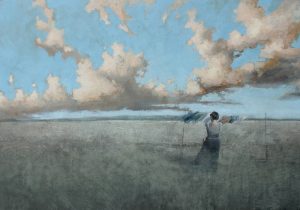 to find the body
to find the body
forgetting
its own fear,
the instant
it opened
and placed
its unassuming
hands
on life’s enduring
pain.
And the world
for one moment
closed
its terrifying eyes
in gratitude.
Saying:
“This is my body, I am found.”
When we meditate we are invited to sit with the full range of human experience. The Taoists described this as the ten thousand joys and the ten thousand sorrows. Joy turns to sorrow. Sorrow turns to joy. Sometimes we get lost in one or the other. When we aren’t paying attention our conditioning takes over in grasping pleasant . . . avoiding unpleasant. And yet so much life is lived in between. This is what the mind does, we become spellbound . . . We come to live what we think life should be. . . . Our awareness practice can break the spell . . . When we enter the stream we have direct experience. We are so much more than who we think we are . . . Life is so much more than what we think it is . . .
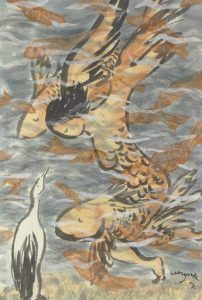 How do we enter the stream of life? In his talk entitled One and the Same, meditation instructor and author, Larry Yang, describes “citta” as a central aspect of mindfulness. He explains this term from Buddhist psychology as “mind-heart,” a “mind heartfulness” with which we bring our hearts to what we are minding. “The mind-heart are one.” He says:
How do we enter the stream of life? In his talk entitled One and the Same, meditation instructor and author, Larry Yang, describes “citta” as a central aspect of mindfulness. He explains this term from Buddhist psychology as “mind-heart,” a “mind heartfulness” with which we bring our hearts to what we are minding. “The mind-heart are one.” He says:
. . . as you allow your awareness to touch your experience without pushing it away, without wanting more of it – that touch is kindness itself. That touch is the nonjudgment – even if the experience that you are having is judgment – which is so prevalent in our culture. The invitation . . . is it possible to not judge the judgment? . . . This paying attention, touching the awareness to the experience, regardless of what it is . . . This paying attention is a profound act of love. It’s a profound act of love in allowing the moment, in allowing you, in allowing me to be who we are . . . without needing to second guess or question or criticize . . . .
Right now, we can reflect on how we pay attention with love. Who, what or where do we lovingly attend? How have we been lovingly attended? These queries often take us to children or pets . . . beings and creatures in our lives who clammer for our attention. Our mind-hearts are touched by this so very human need we all share – the need to receive and to give our attention. Paying attention, being aware of someone else is love. Larry observes:
. . . when you’re paying attention to your own experience . . . you are giving yourself this profound experience of love that we look everywhere else in our world for . . . that intimacy, that tenderness is available as soon as we turn our attention to ourselves with this aspiration of kindness . . .
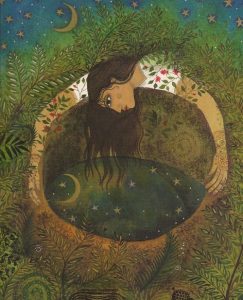 All of our ten thousands joys and sorrows deserve our attention and love. Larry asks: “Is it possible to love someone without loving all of who they are?” Perhaps we feel – rather than know – the answer to this question. We can reflect on our many experiences of tender forbearance during those difficult times in relationship – with partners, family members and friends. Do we pick and choose what is deserving of love in ourselves?
All of our ten thousands joys and sorrows deserve our attention and love. Larry asks: “Is it possible to love someone without loving all of who they are?” Perhaps we feel – rather than know – the answer to this question. We can reflect on our many experiences of tender forbearance during those difficult times in relationship – with partners, family members and friends. Do we pick and choose what is deserving of love in ourselves?
We can feel this tender forbearance as the experience of compassion. We begin cultivating compassion with ourselves. We cultivate the ability to be with our difficulties, our pain by allowing it to be. This – tenderly being with – is the experience in which our minds and hearts are one. We learn what is really called for – what is needed.
When something, someone, touches our hearts – we are called to not turn away. When we learn of the wildfires raging in California – we don’t turn away . . . When we hear of exhausted caregivers tending to pandemic patients – we don’t turn away . . . When we witness the suffering and even dying of racial injustice – we don’t turn away. We resist the urge to distraction and bring our caring hearts and minds tenderly being with these ten thousand sorrows.
It is in our ability to really be with the moment that the awareness of what to do next arises in the 10,000 many ways in each of our lives. Larry quotes Martin Luther King who advised ‘we must accept finite disappointment but we must never lose infinite hope.’ Larry says:
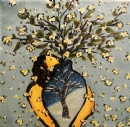 In the middle of difficulty there’s still the possibility of freedom. We can change our lives because we think we should be different than how we are . . . or we can change our lives because we are so tenderly aware of how precious this life is. . . .
In the middle of difficulty there’s still the possibility of freedom. We can change our lives because we think we should be different than how we are . . . or we can change our lives because we are so tenderly aware of how precious this life is. . . .
. . . We can work to change conditions in the world because we think the world should be different because we can’t stand the harm that’s being caused or we can be inspired to change the world because we love it so dearly because it is not just my life it is our life that is so brilliantly precious and we cannot do anything else except honor all of life and to open our hearts as wide as the world itself.
Mark Nepo’s poem, Walking North, makes this engagement with life seem miraculous and ordinary.
No matter how I turn
the magnificent light follows.
Background to my sadness.
No matter how I lift my heart
my shadow creeps in wait behind.
Background to my joy.
No matter how fast I run
a stillness without thought is where I end.
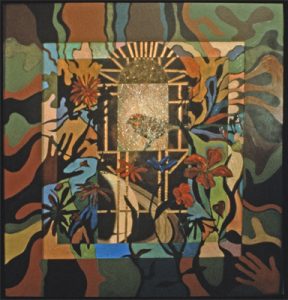 No matter how long I sit
No matter how long I sit
there’s a river of motion I must rejoin.
And when I can’t hold my head up
it always falls in the lap of one
who has just opened.
When I finally free myself of burden
there’s always someone’s heavy head
landing in my arms.
The reasons of the heart
are leaves in wind.
Stand up tall and everything
will nest in you.
We all lose and we all gain.
Dark crowds the light.
Light fills the pain.
It’s a conversation with no end,
a dance with no steps,
a song with no words,
a reason too big for any mind.
No matter how I turn
the magnificence follows.
